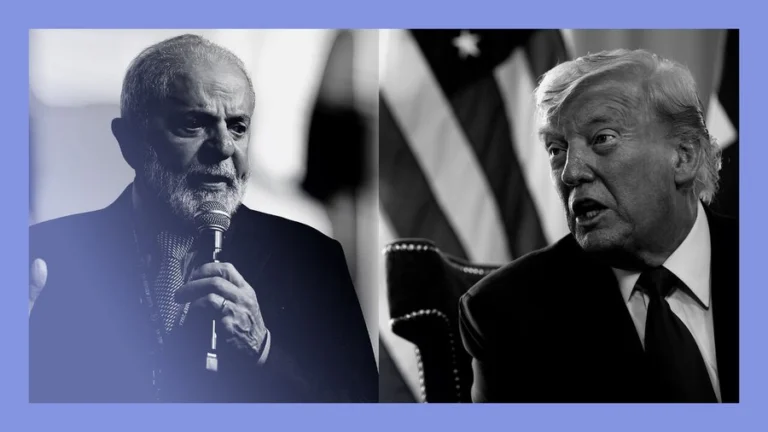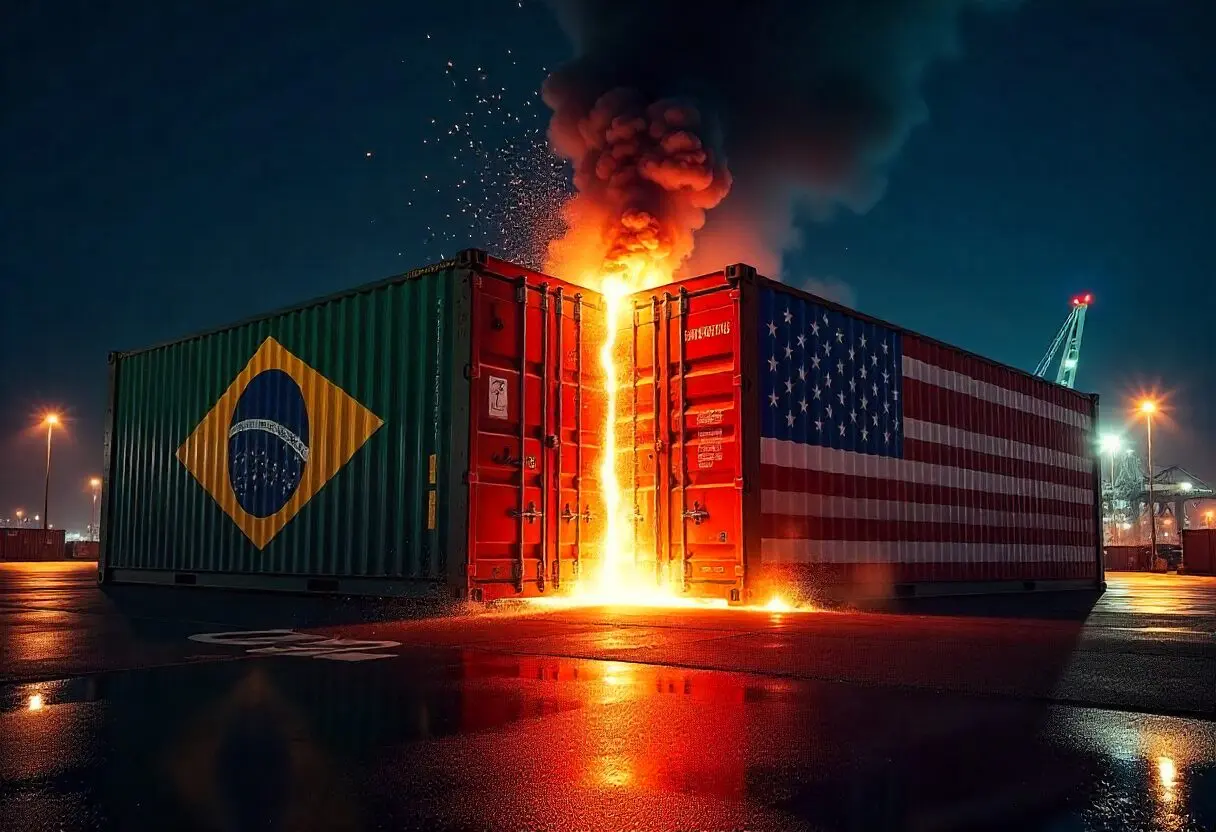Trump’s Tariff Threat Against Brazil Strengthens Legal Case Against Emergency Trade Powers
President Trump’s 50% tariff threat against Brazil is reinforcing a legal battle that could strip away the emergency authority used to justify his sweeping trade measures.

Trump’s tariff threat against Brazil sharpens the legal spotlight on the scope of U.S. presidential trade powers. Photo: TheEconomist
July 30, 2025 Hour: 7:46 am
President Trump’s threat to impose 50% tariffs on Brazilian goods has intensified a high-stakes legal challenge that could dismantle the emergency powers underpinning his aggressive trade policy.
RELATED:
A growing number of legal experts and plaintiffs argue that Trump’s latest move—announced in a politically charged letter to Brazilian President Luiz Inácio Lula da Silva—illustrates his misuse of the 1977 International Emergency Economic Powers Act (IEEPA) to impose tariffs beyond the bounds of the law.
“This just shows that the president believes he has unchecked authority to impose tariffs,” said Jeffrey Schwab, senior counsel at the Liberty Justice Center. Schwab represents five small businesses challenging the IEEPA-based tariffs, and expects the Brazil threat to surface prominently in oral arguments before the U.S. Court of Appeals for the Federal Circuit this Thursday.
The case stems from a May ruling by the Court of International Trade, which found Trump had exceeded his legal mandate under IEEPA when issuing broad “reciprocal” and fentanyl-related tariffs on a wide range of trading partners. While the decision is under appeal, the tariffs remain in effect and could ultimately reach the U.S. Supreme Court.
In his July 9 letter to Lula, Trump called for an immediate end to the trial of former President Jair Bolsonaro, labeling it a “Witch Hunt” and accusing Brazil of censorship and attacks on free speech. Bolsonaro is facing prosecution over his alleged role in the 2023 storming of government buildings in Brasília—a failed attempt to overturn his 2022 election loss. He denies the charges.
Trump’s letter cited “unsustainable Trade Deficits against the United States” as justification for the new tariffs, despite the U.S. maintaining a consistent trade surplus with Brazil since 2008—including \$6.8 billion in 2024. The proposed 50% tariff, set to take effect August 1, matches the steepest rate imposed under Trump’s “reciprocal” tariff program, equaled only by Lesotho.
Legal scholars argue the move has little basis in trade law. “The 50% Brazil duties bear no relationship to a national emergency in the United States,” said Georgetown University law professor Jennifer Hillman. “They have nothing to do with a trade deficit.” Hillman filed an amicus brief on behalf of 191 Democratic lawmakers, contending that Congress never intended IEEPA to authorize tariffs, as existing trade laws already provide such tools.
Daniel Esty of Yale Law School agreed, stating, “Even if trade deficits could be defined as a national emergency, punishing Brazil over the prosecution of a former president is so clearly outside the bounds of the law as to be shocking.”
In fact, Brazil is the second-largest U.S. trading partner in Latin America after Mexico, and has sought to negotiate a resolution before the August deadline. However, officials have acknowledged that a deal may not be possible in time, especially as the Trump administration focuses on larger economic rivals.
Adding further complexity, Trump also ordered a Section 301 investigation into Brazil’s trade barriers, including digital restrictions. Brazil’s Solicitor General Jorge Messias suggested the probe was politically motivated and reflects weakness in the administration’s legal case for IEEPA-based tariffs.
Trade lawyer Daniel Cannistra noted that while the IEEPA tariffs may be vulnerable in court, the administration is simultaneously pursuing more durable tools under Section 301 and Section 232—targeting sectors like autos, steel, aluminum, pharmaceuticals and semiconductors. These efforts allow the White House to maintain negotiating leverage even as the courts weigh the legality of IEEPA actions.
“For major trading partners, the threat of more legally sound tariffs—such as the 27.5% automotive duty—may be enough to force concessions,” said Cannistra. “The administration can continue negotiating with little regard to the legality of the IEEPA tariffs.”
As legal proceedings advance, the outcome could redefine the limits of executive authority over trade. For countries like Brazil, the implications go far beyond tariffs—underscoring how U.S. political decisions reverberate across the Global South and reshape the rules of international commerce.
Author: MK
Source: Reuters



